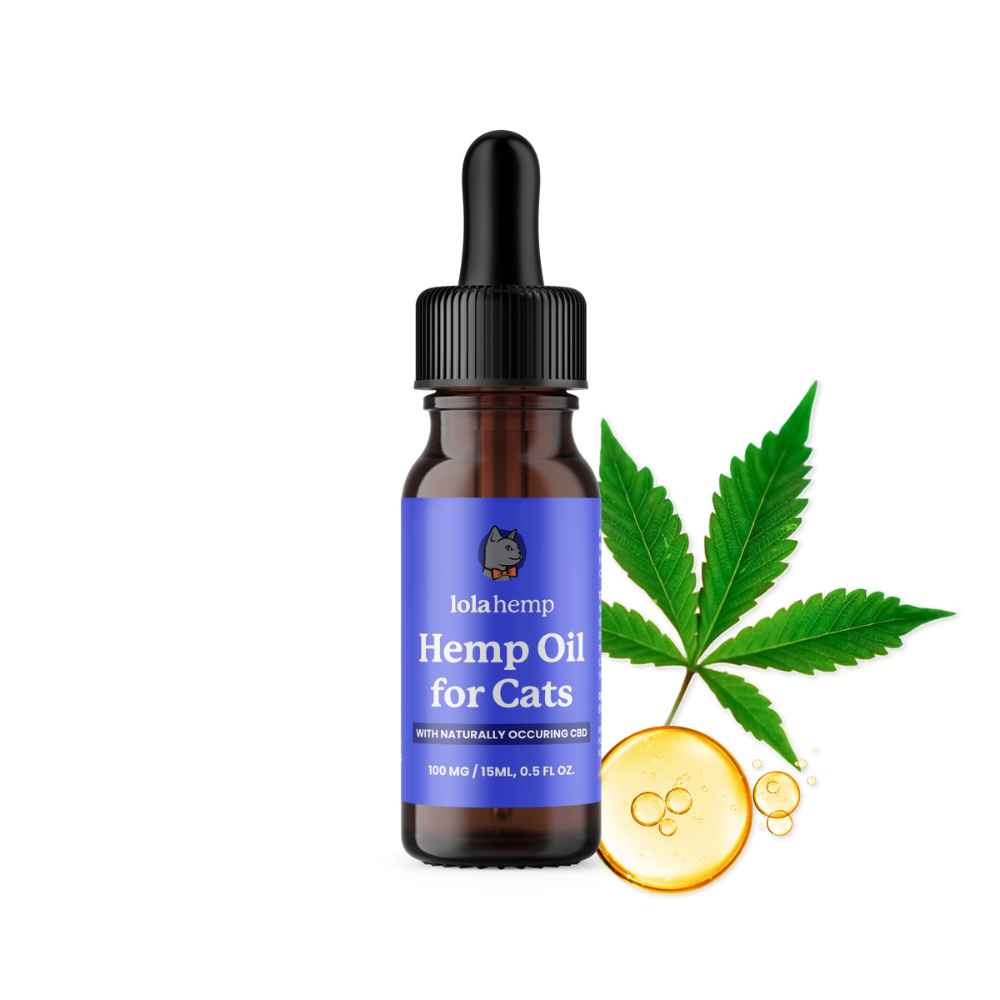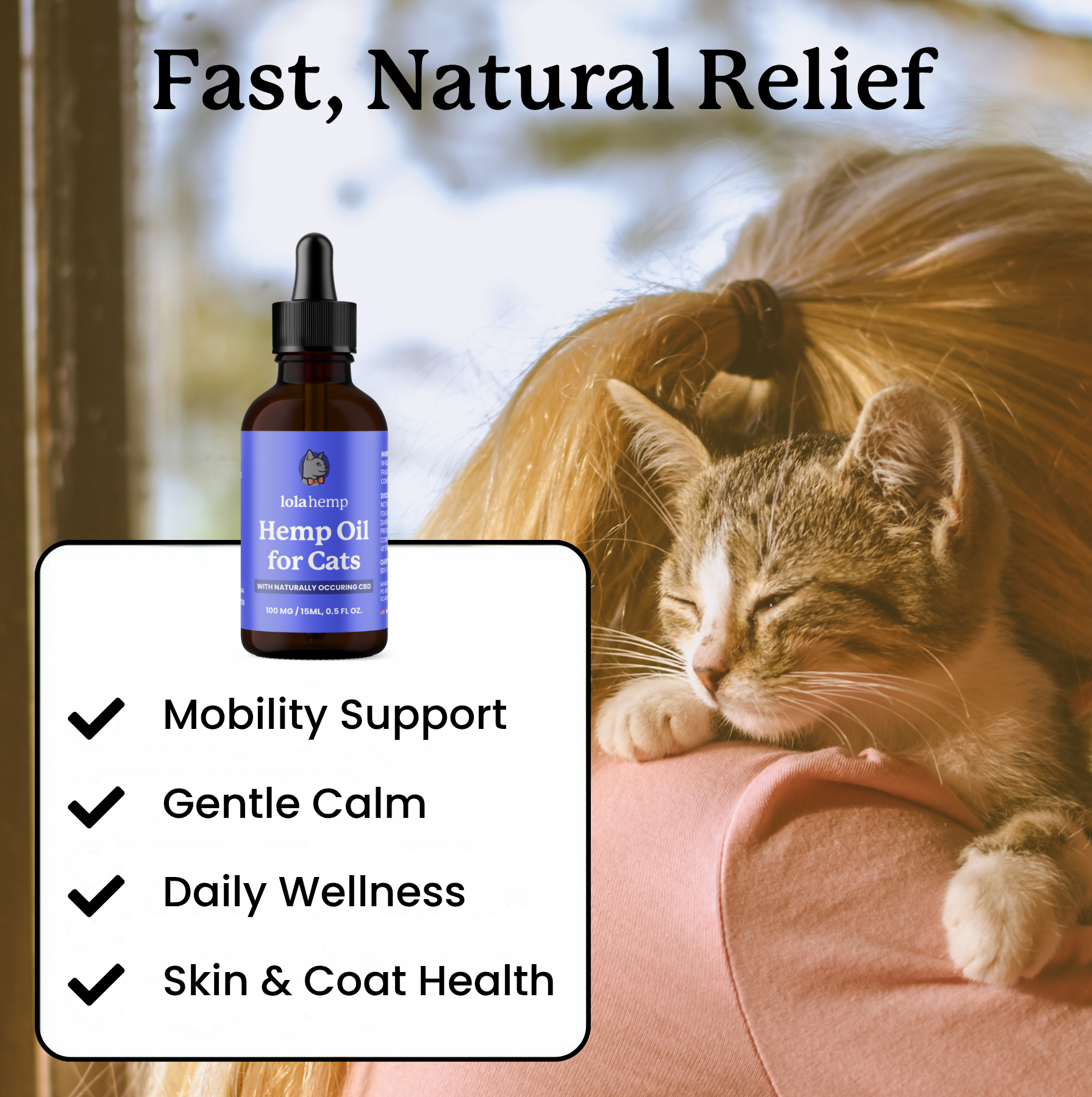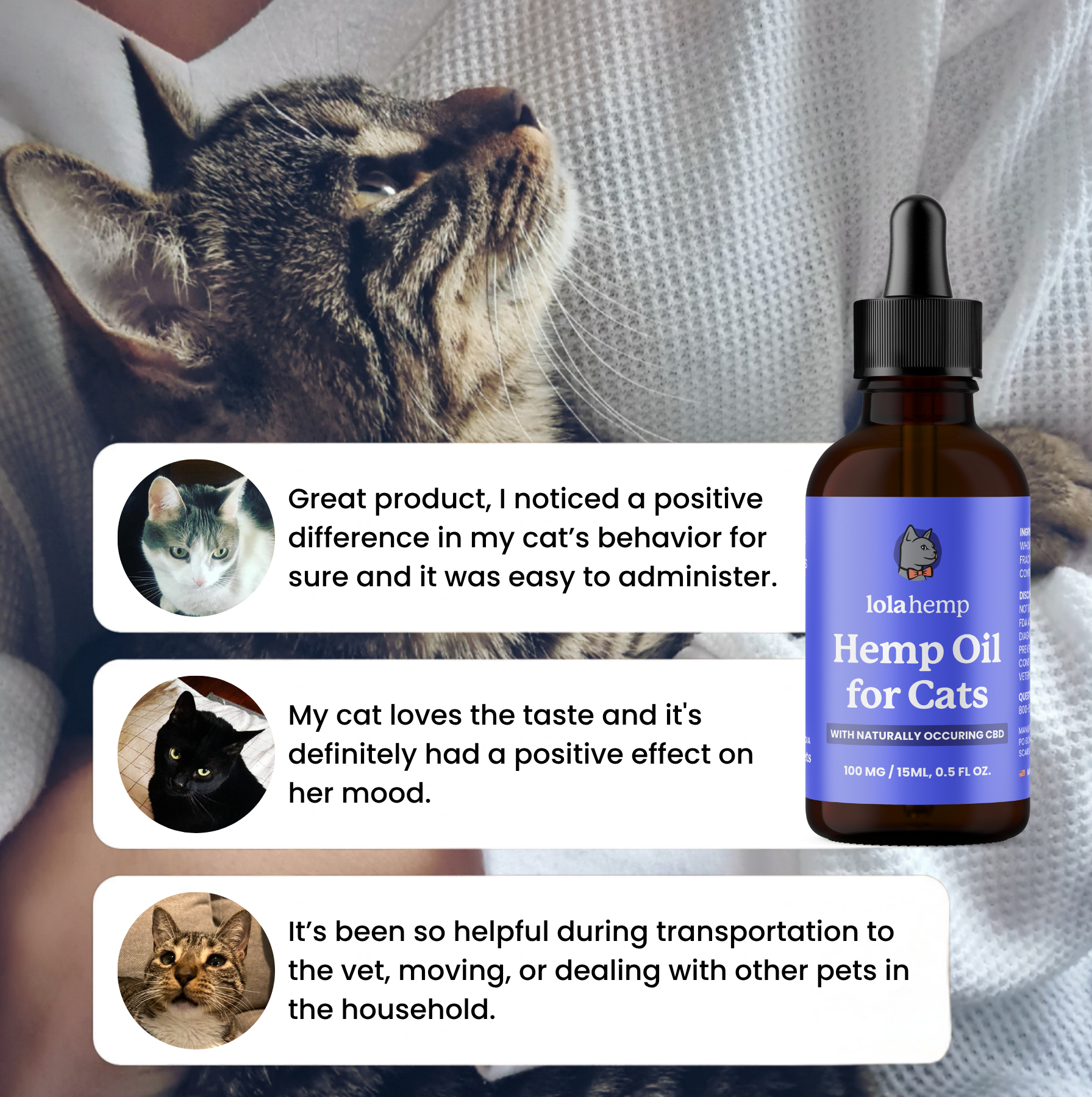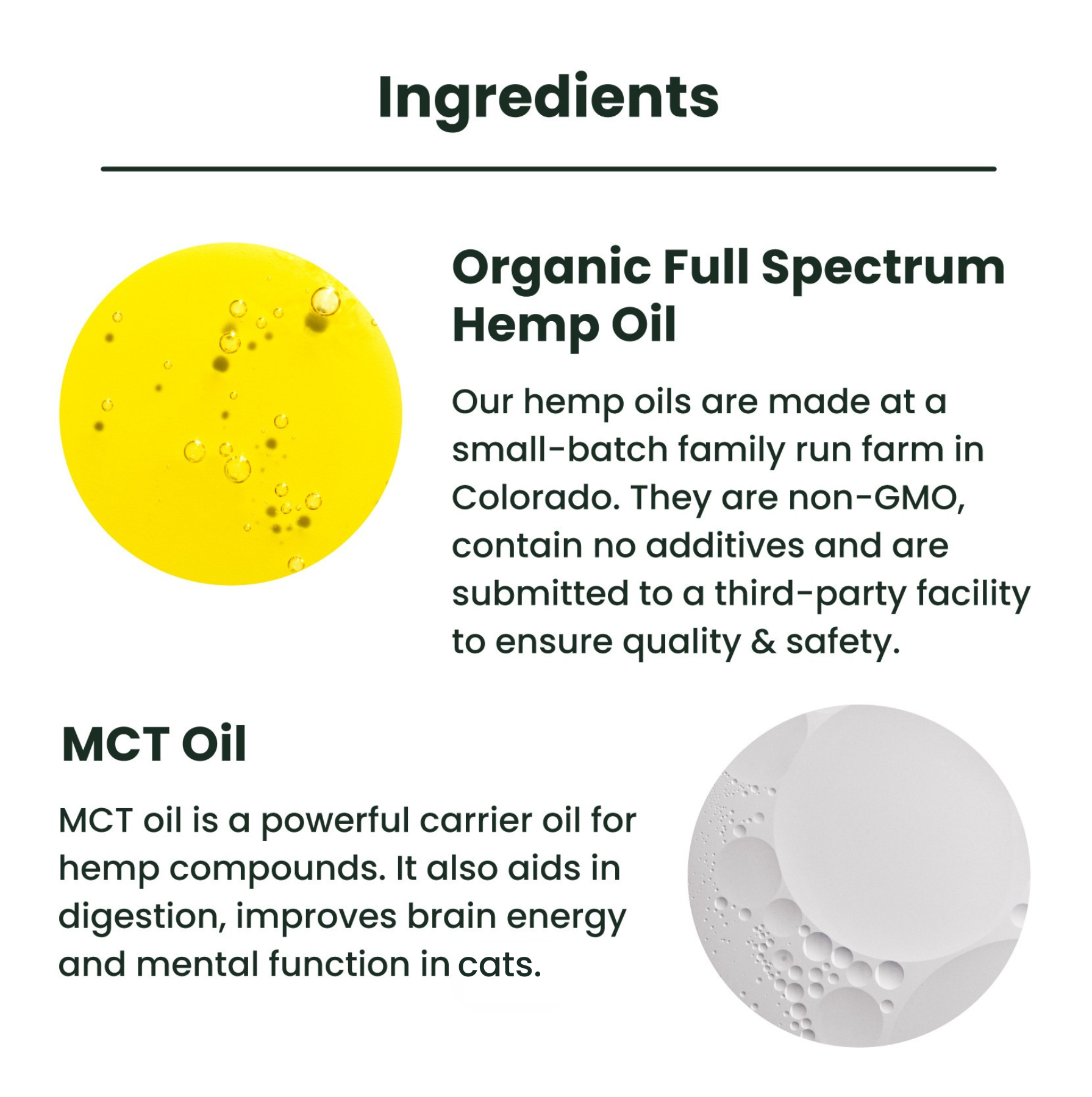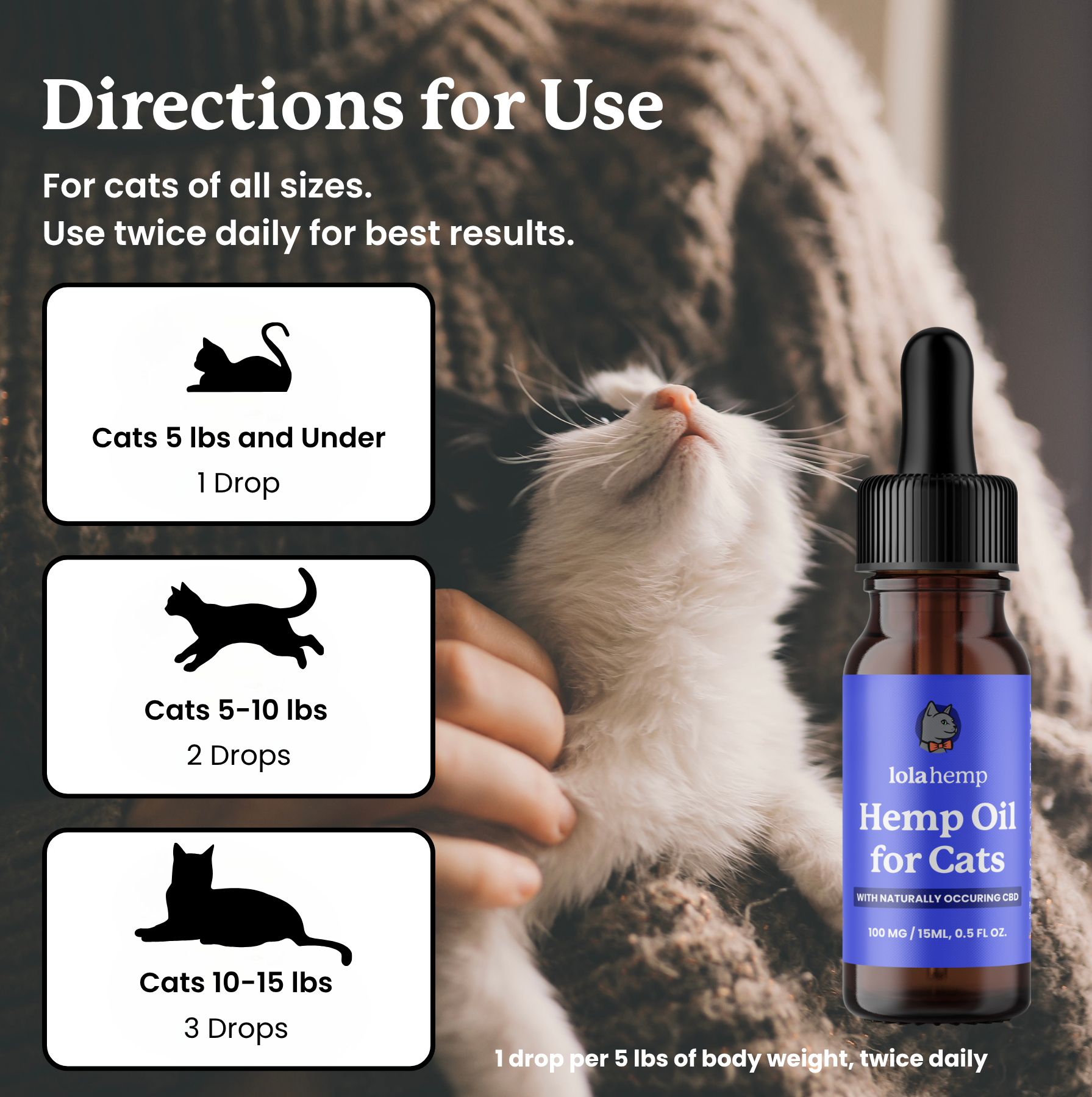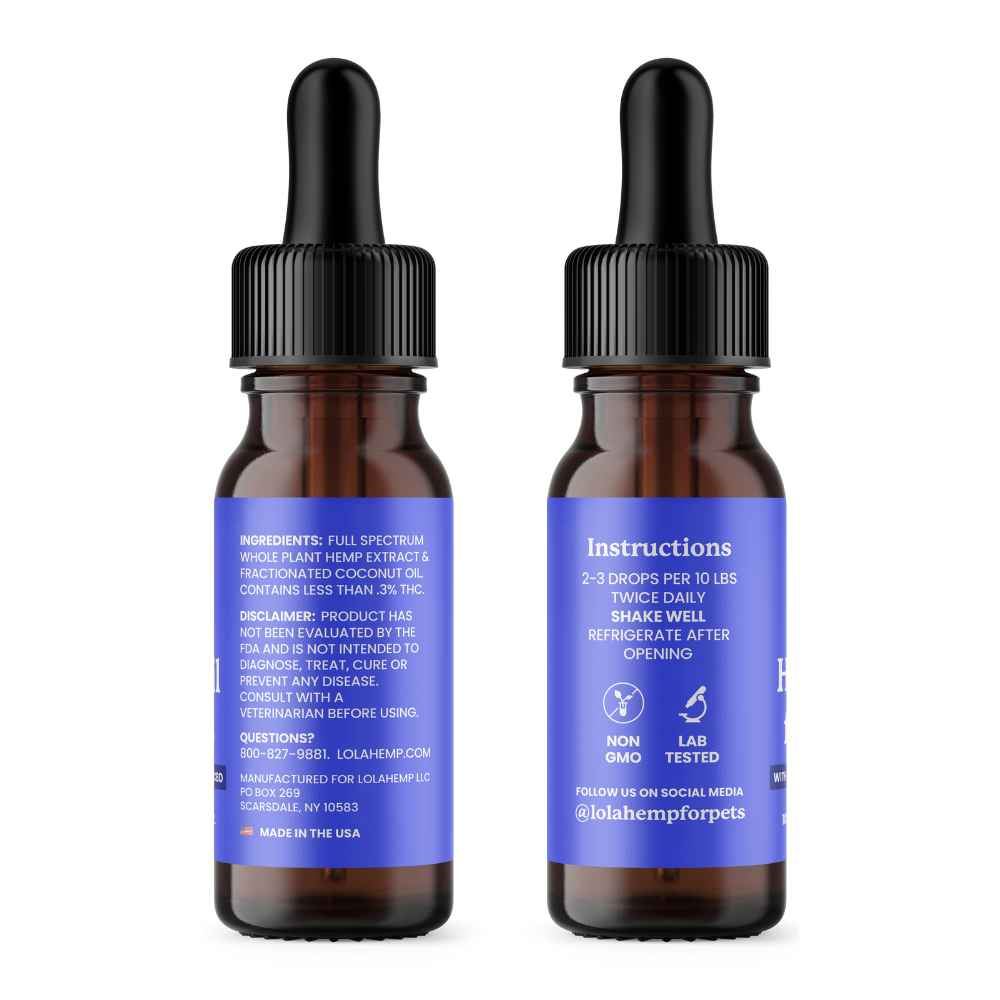Cats sometimes suffer from anxiety which can manifest in various ways including excessive grooming, hiding, aggression, and more. While traditional veterinary medicine offers treatments for anxiety, many pet owners are turning to natural alternatives such as CBD products made for cats.
This guide covers the ways in which CBD oil may support your cat's anxiety symptoms.
How Does CBD Oil Work for Cat Anxiety?
CBD oil interacts with the endocannabinoid system (ECS), a complex network of receptors found throughout the body, including the brain, nervous system, and immune system. The ECS plays a crucial role in regulating mood, appetite, pain perception, and immune response.
When CBD is administered to cats, it binds to receptors in the ECS, helping to modulate these functions. In cases of emotional distress, CBD may ease separation anxiety by influencing serotonin receptors in the brain, promoting a sense of calm. These effects can help regulate the nervous system and support either temporary or ongoing calm, depending on how long you provide CBD oil.
Using CBD Oil for Feline Behavioral Support
Cats with behavioral issues—such as aggression, excessive grooming, or inappropriate elimination—may benefit from the calming effects of CBD oil. By reducing anxiety and creating a sense of relaxation, CBD may help improve behavior and reduce stress-driven responses.
Regular CBD oil use may benefit cats with a history of trauma or those facing ongoing stressors by promoting a more balanced demeanor and improving interactions with pets and family members.

How Long Does it Take CBD Oil to Help Cat Stress?
CBD oil may not help every cat, but many owners report noticeable improvements. If it does help your cat, benefits may appear in both short-term and long-term ways.
If you're using CBD oil for a specific situation—such as travel or a vet visit—administer the dose about an hour beforehand.
For general daily calmness, consistent dosing is recommended: twice daily, with dosage based on your cat's weight.
Things to Know about Using CBD Oil for Your Cat's Anxiety
The most important factor when using CBD oil for cats is choosing a formula specifically made for felines. Always follow weight-based dosage guidelines.
While no serious adverse reactions have been commonly reported in cats, excessive CBD may cause drowsiness or digestive upset. Some cats may also react unpredictably on their first use, so monitoring your cat closely is essential.
CBD Oil for Cat Anxiety – Frequently Asked Questions
Can CBD oil calm an anxious cat?
CBD oil may promote relaxation by interacting with the endocannabinoid and serotonin systems, helping reduce stress-related behaviors.
How long before CBD oil works for cats?
For situational stress, administer about an hour before the triggering event. For daily calmness, give CBD twice daily.
Is CBD oil safe for cats?
CBD oil is generally safe when using a cat-formulated product and proper dosing. Monitor your cat for drowsiness or digestive upset.
Can CBD help with behavioral issues?
CBD may help reduce stress-linked behaviors such as aggression, excessive grooming, and hiding by promoting calmness.

